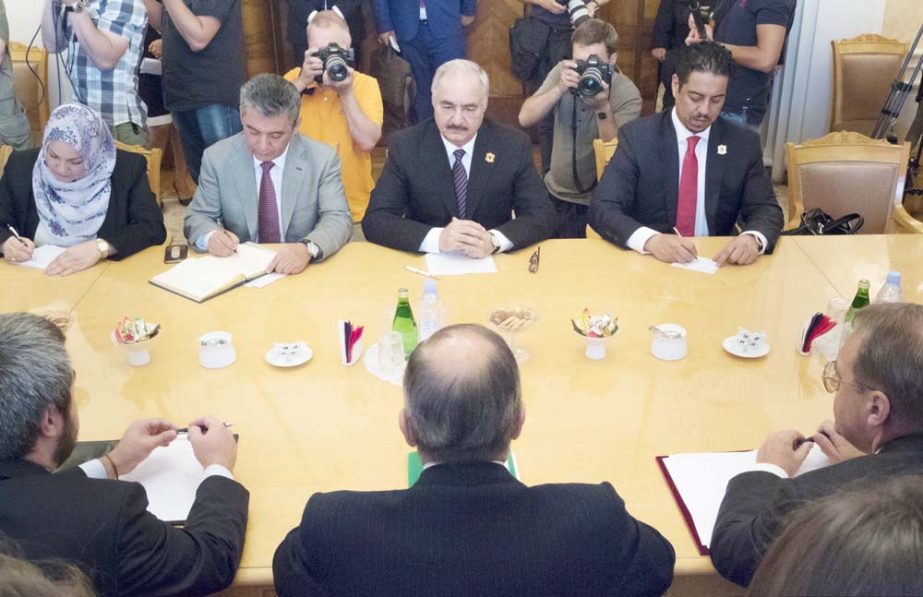
AP, Tripoli :
Officials in Libya’s U.N.-supported government say they plan to confront Moscow over the alleged deployment of Russian mercenaries fighting alongside their opponents in the country’s civil war.
Libyan and U.S. officials accuse Russia of deploying fighters through a private security contractor, the Wagner Group, to key battleground areas in Libya in the past months. They say the Russian fighters are backing commander Khalifa Hifter, whose forces have been trying for months to capture the capital Tripoli. The U.N.-supported Government of National Accord is based in Tripoli.
The GNA has documented between 600 to 800 Russian fighters in Libya and is collecting their names in a list to present to the Russian government, according to Khaled al-Meshri, the head of the Tripoli-based government’s Supreme Council of State.
“We are going to visit Russia after we collect all evidence and present to the authorities and see what they say,” al-Meshri told The Associated Press last week. He did not say when that visit would take place. Moscow has repeatedly denied playing any role in Libya’s fighting. Hifter’s self-styled Libyan National Army – made up of army units, ultraconservative Salafists, and tribesmen – launched its offensive on Tripoli in April after seizing much of eastern Libya from Islamic militants and other rivals in recent years. Hifter is backed by the United Arab Emirates and Egypt, as well as France and Russia, while the Tripoli-based government receives aid from Turkey, Qatar and Italy. Libya was plunged into chaos when a NATO-backed uprising toppled longtime dictator Moammar Gadhafi in 2011. The country is now split between a government in the east, allied with Hifter, and the GNA in Tripoli in the west. Both sides are bolstered by militias. Fighting has stalled in recent weeks, with both sides dug in and shelling one another along Tripoli’s southern reaches.
U.S. Assistant Secretary of State for Near East Affairs David Schenker told reporters last week that the State Department is working with European partners to impose sanctions on the Russian military contractor responsible for sending fighters to Tripoli.
“The way that this organization of Russians in particular has operated before raises the specter of large-scale casualties in civilian populations,” he said.
Schenker’s comments came shortly after U.S. officials met with Hifter to press for a cease-fire and “expressed serious concern” over Russia’s intervention in the conflict. But President Donald Trump has sent decidedly mixed messages to Hifter.
Trump voiced support of Hifter when he launched his attempt to take over Tripoli, praising the commanders “anti-terrorism” efforts in a phone conversation. The call was a sharp break with the U.S. policy of supporting Libya’s.

